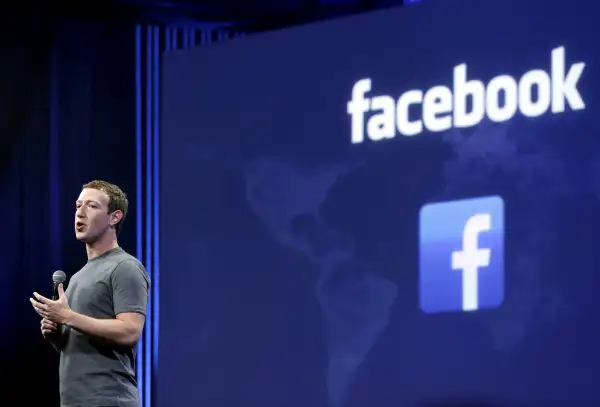Facebook Workers Just Got a Better Parental Leave Policy. Here's When You'll Get Yours

The parental leave bandwagon is gathering steam -- at least among one group of employers.
Just before Thanksgiving, Facebook's head of human resources announced (on Facebook, of course) that the social media behemoth will extend the company's four-month paid parental leave plan to all employees worldwide. This came on the heels of Facebook's founder and chief executive Mark Zuckerberg's post (more than 300,000 "likes") in which he wrote that he'd take two months of leave after the birth of his daughter.
Facebook's move follows similar announcements by other multinational corporations, mainly in the tech sector. Netflix, Amazon, Microsoft, Spotify, and Adobe have all unveiled more generous parental leave policies in recent months, in moves seen partly as a recruiting ploy and PR offensive. Non-tech giants like Johnson & Johnson and Credit Suisse have joined the movement as well.
Yet the question remains whether parental leave will remain a niche perk for highly competitive employers or a widespread corporate benefit trend. Only about one in five businesses had any kind of paid maternity leave policy in 2015, according to the Society for Human Resources, with about one in six offering paid paternity or adoption leave. (Even those fractions, however, represent a jump from the previous year, when only about one in eight had a paid maternity, paternity, and/or adoption benefit.)
"Paid parental leave is industry-specific," says Lenny Sanicola, a spokesman for WorldatWork, a nonprofit association of HR professionals. "It's based on the labor market and what you need to do to retain and attract workers."
Special Circumstances
The tech industry has a few specific circumstances that make it a fertile area for expanded parental benefits, say HR experts. One is demographic: Tech companies employ droves of millennials, the oldest of whom are well into their peak childbearing years, and who as a generation value paid leave more than their elders did. A recent survey by Ernst & Young found that “millennials around the world are more likely than other generations to cite paid parental leave as an important benefit." Millennials are also more likely than boomers to work full time, and have a spouse who works full-time, Ernst & Young says.
The tech industry also competes fiercely with both salary and perks to attract and retain talent. "The paid leave movement that started in tight labor markets -- like tech -- began as a differentiator," says Mercer senior health and welfare consultant Scott Grenn.
The historically male-dominated tech industry has also seen parental leave policies as a way to attract women to its competitive, work-obsessed culture. "In order to address concerns of a lack of diversity, some Silicon Valley companies came out and offered generous benefits," says Mary Tavarozzi, a senior consultant for Towers Watson.
Challenges Elsewhere
But for every Facebook, there are several retailers and hospitals that face fewer competitive recruiting pressures and find it harder to part with employees for an extended period. "The economic dynamics for retail or manufacturing or health care, where you can't decide that you're not going to replace people's shifts, is very different than high tech or finance," says Tavarozzi.
Companies have a bit more leeway when it comes to adapting to an absence of a white-collar worker, especially in high profit-margin businesses, Grenn explains; co-workers can spread the work around or implement a system to reallocate responsibilities. But if an hourly employee at a coffee shop isn't at the cash register, then he or she will need to be replaced.
At Netflix, for instance, the parental leave policy -- which offers unlimited paid leave after the birth or adoption of a child -- doesn't extend to the low-wage warehouse workers who sort the company's DVDs. (There's an online petition with almost 8,000 signatures urging Netflix to update the policy.)
There's another problem: the rise of the so-called gig economy. "In the next five years, for example, 40% of the workforce will be independent workers for whom paid leave is currently not an option," says Simon Isaacs, the co-founder of Fatherly, a lifestyle site for new dads.
'Social Movement'
Yet corporate culture does seem to be changing, albeit not as fast as some new parents would like. Millennials will make up three-quarters of the work force in a decade, and will continue to exert their influence on corporate practices, according to the SHRM notes.
What was once a recruiting tool "is now becoming a social movement," says Mercer's Grenn; Tavarozzi suggests that parental leave will be a "hot topic" during the 2016 presidential election.
Indeed, the backlash that followed Netflix's announcement of a two-tier policy is itself an indication of change, says Kenneth Matos, senior director of research at the Families and Work Institute. "The fact that they got a bite means there's more of a sense that these sorts of benefits are a baseline that should be enjoyed by all employees, as opposed to a high-level perk," he says.
Matos also speculates that the Netflix policy blowback may have launched further change. "Amazon saw the negative press from Netflix's announcement, and made it clear to everyone that its policy includes everyone," he says. And Amazon and Netflix could in turn influence other companies, he says.
"These companies are the early adopters showing that it can be done," says Matos. "This gives other companies the incentive to experiment with their own ways of getting it done."
Read next: How Facebook Is Taking Over the World
